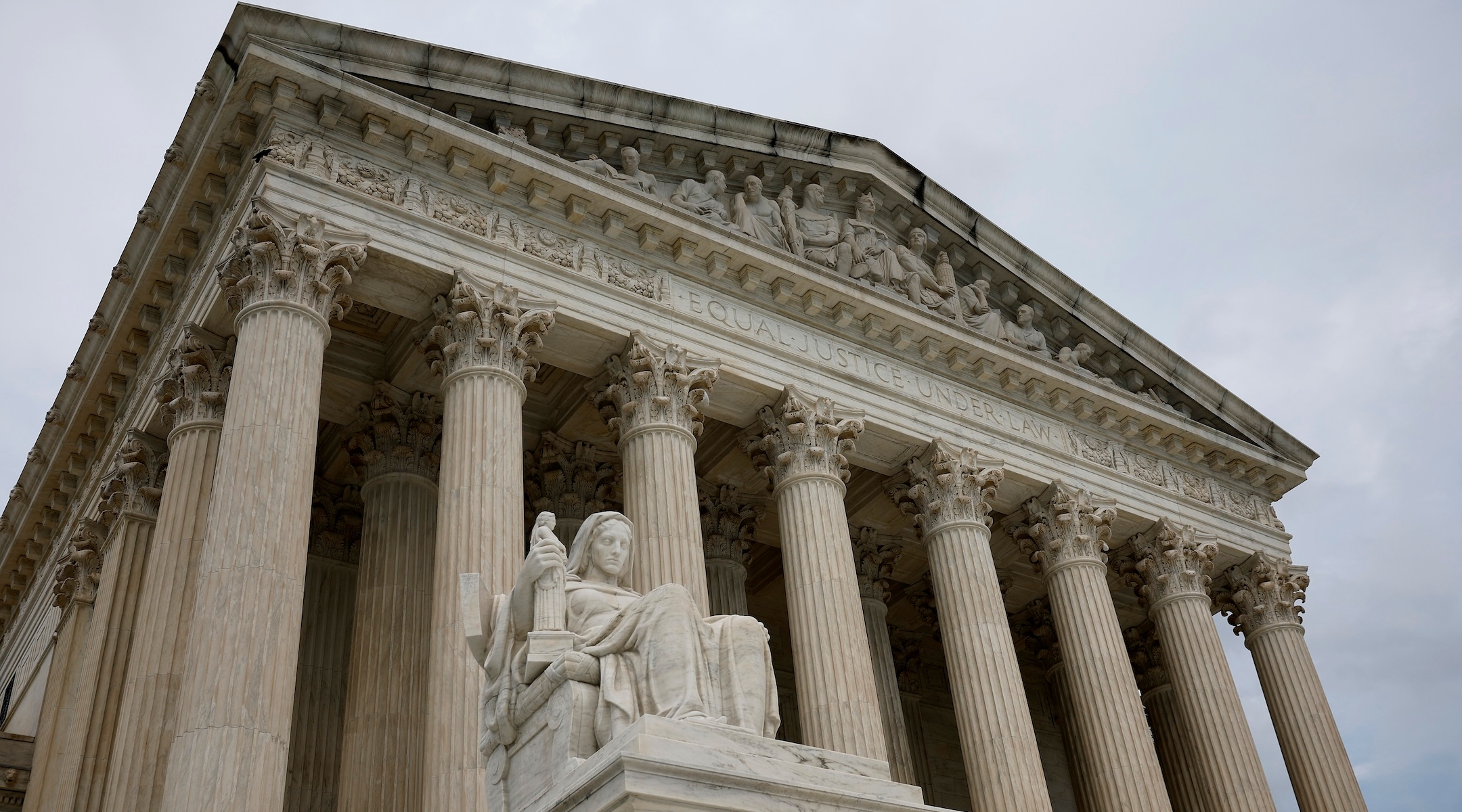Supreme Court deadlock blocks Oklahoma’s plan for religious charter school, in pivotal case
But the court did not rule on the underlying question of whether religious charter schools are constitutional

The U.S. Supreme Court in Washington, D.C., is pictured on July 30, 2024. Photo by Kevin Dietsch/Getty Images
(JTA) — A deadlocked Supreme Court on Thursday let stand a ruling that blocks Oklahoma from using public funds to operate what would have been the nation’s first religious charter school.
The 4-4 split, with Justice Amy Coney Barrett recusing herself, means the Oklahoma Supreme Court’s decision barring the state from sponsoring St. Isidore of Seville Catholic Virtual School will remain in effect. Justices offered no explanation or vote breakdown, stating only that the lower court was “affirmed by an equally divided court.”
The proposed online school, backed by the Archdiocese of Oklahoma City and the Diocese of Tulsa, intended to incorporate Catholic doctrine into its curriculum and daily operations, prompting legal challenges over whether state support would amount to government endorsement of religion.
The brief and unexpected ruling came just weeks after oral arguments where the court’s conservative-leaning justices, who make up the majority, had seemed receptive to the school’s position, which relied on the Constitution’s guarantee of religious freedom. The case was closely watched for its potential to reshape the boundaries of church-state separation in public education. A ruling in favor of St. Isidore could have led to the creation of publicly funded Jewish charter schools, a scenario raised by Justice Elena Kagan during oral arguments.
Barrett did not participate in arguments or deliberations, and the court gave no reason for her recusal. Barrett has long-standing personal and professional ties to Notre Dame Law School professor Nicole Stelle Garnett, an early adviser to St. Isidore. The two clerked together in the late 1990s, later taught together at Notre Dame, and Barrett is reportedly the godmother to one of Garnett’s children.
Because the ruling resulted from a tie rather than a majority opinion, it does not set a national precedent on the larger constitutional question: whether the First Amendment allows states to fund religious charter schools, which are considered public schools but operate with more autonomy. If another case makes its way to the court, the court is free to accept it — an eventuality that is seen as likely given the organized effort that reportedly went into developing St. Isidore as a test case.
















